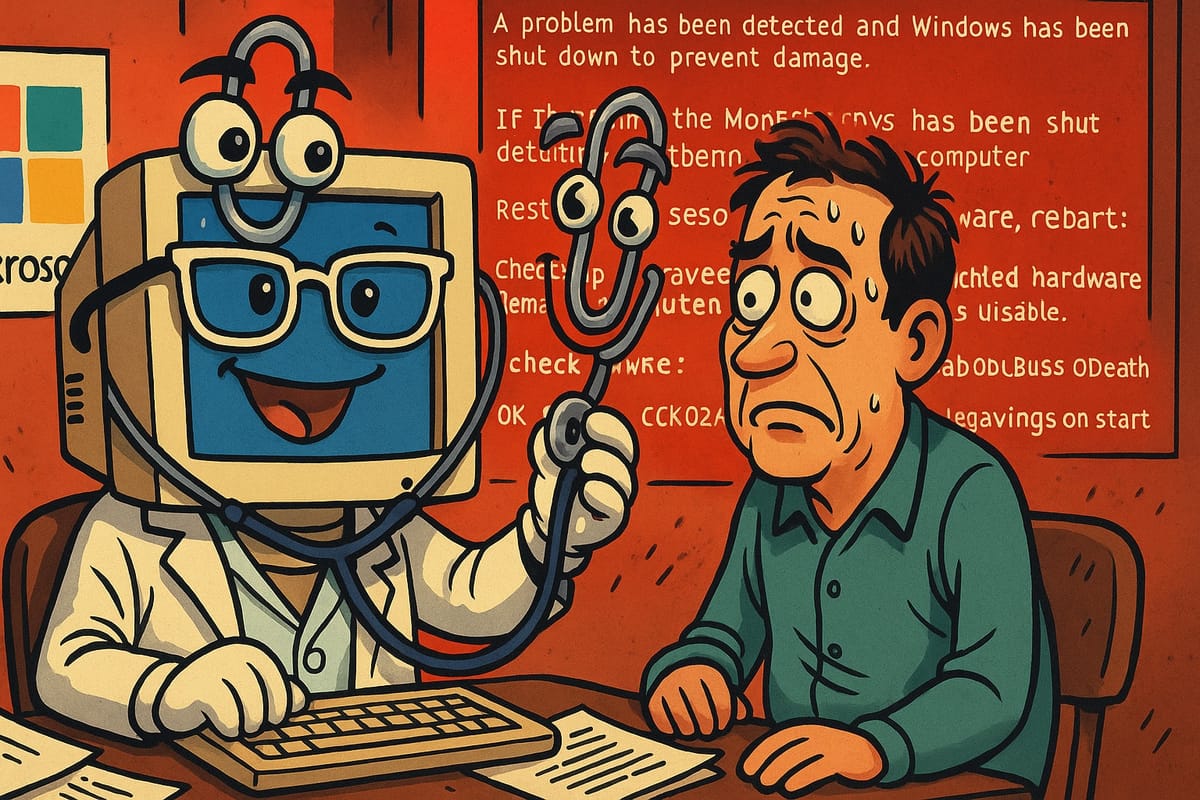Microsoft’s New AI Doctor: Because Who Needs Real MDs When You’ve Got Clippy 2.0?
... let’s celebrate Microsoft’s latest PR triumph: convincing the world that AI panaceas are just a cloud subscription away, and that handing life-and-death decisions over to an orchestrator is the zenith of human progress ...


Isn’t it just delightful that Microsoft, the masterminds behind accidentally deleting your hard drive, Blue Screen of Death, and that lovable paperclip assistant, now reckon they can crack the medical code with a bit of AI wizardry? After all, they’ve only claimed MAI-DxO diagnoses 85% of “complex” cases straight out of the New England Journal of Medicine, you know, the stuff every first-year med student has memorized in their sleep .
And let’s not forget the heartwarming statistics: twenty-one seasoned physicians, decades of training and real lives at stake, managed a “measly” 20% accuracy, while Microsoft’s shiny AI multitools blitzed past them four times over . I mean, who needs empathy, bedside manner, or, you know, actual human judgment?
But hey, at least MAI-DxO is cost-conscious. It won’t wrack up your medical bill ordering every test under the sun, unless, of course, you want it to. Because nothing says “we care” like a virtual cost check that might still bill you for three MRI scans, two CT scans, and a genomic sequencing run, all before breakfast .
Microsoft’s storied innovation history really shines here. Remember when they invented tablet PCs? Or Windows Phone? Oh right, nobody else does either. Yet they’re convinced that orchestrating a “virtual panel” of AI models is the next frontier of healthcare, because apparently if one AI is good, ten must be better .
Picture the scenario: your AI “doctor” suggests a treatment plan, but oops, the safety regulator didn’t get its memo, the code’s not peer-reviewed yet, and the only “clinicians” in the room are digital hallucinations. But sure, let’s roll this out globally. What’s a little errant antibiotic prescription here or a misplaced chemotherapy recommendation there between “transforming healthcare” and “empowering patients” ?
Speaking of future thrills, Microsoft assures us they’ll partner with “leading health organizations” post-validation, and by “post-validation” they mean after at least three regulatory bodies send sternly worded emails . But until then, feel free to trust the AI that’s already outperforming doctors but still can’t keep your cursor from jumping to the wrong text box.
And oh, the ethical checklist! They’ll need robust governance, but rest easy: the same folks who drafted Xbox’s EULA are on the case. Surely their expertise in “agreeing to anything with a checkbox” will ensure your next diagnosis is both “ethical” and “transparent” .
In conclusion, let’s celebrate Microsoft’s latest PR triumph: convincing the world that AI panaceas are just a cloud subscription away, and that handing life-and-death decisions over to an orchestrator is the zenith of human progress. Because if there’s one thing we’ve learned from the geniuses who popularized MS Paint and Internet Explorer, it’s that more software is always the answer—right up until you need an actual doctor.
